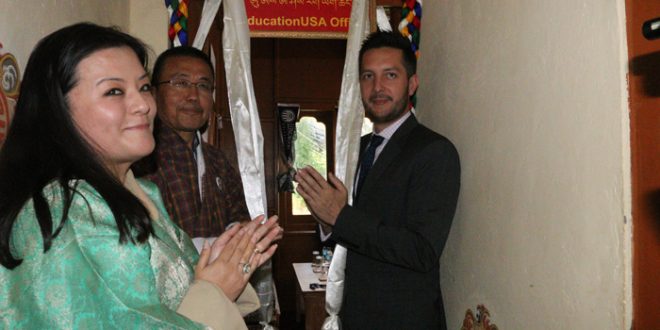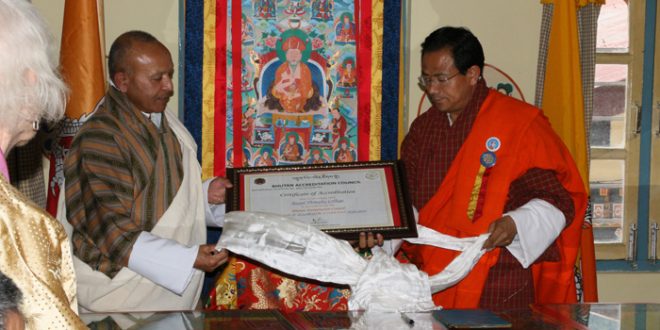News and Events
- Details

Education: With the first EducationUSA reference centre in the country, Bhutanese students who wish to study in the United States of America (USA) can now have access to accurate, current, and comprehensive information about educational institutions in the USA.
The first secretary for exchanges and education with the American Centre in New Delhi, Matthew K Asada, inaugurated the centre located at the Department of Adult and Higher Education (DAHE) in Thimphu yesterday.
DAHE’s director general, Tshewang Tandin, said that the USA is one of the sought after destinations for Bhutanese students.
“The small centre will guide the Bhutanese students who go for studies in the United States through government scholarships as well as those who go through self finance,” Tshewang Tandin said.
The centre has books, information and study materials for interested students.
- Details
Education: In a move to facilitate higher education for economically disadvantaged students, the Department of Adult and Higher Education (DAHE) has selected 123 students for the student loan scheme for tertiary education, taking the total number to over 323 in three years.
This year over 200 students applied for the tertiary education loan scheme, which was started in 2014. After much sorting out 123 economically disadvantaged students were selected.
“The students were asked to come with their parents and guardians for agreement signing and verification,” DAHE chief programme officer, Rinzin Wangmo said.
The loan will be released in two segments as tuition fees and living allowances.
- Details

Education minister Norbu Wangchuk awarded accreditation certificates to the Royal Thimphu College (RTC) and Reldri Academy of Health Sciences (RAHS) in Thimphu yesterday.
The first of its kind, the accreditation process involved a four-day visit by Bhutan Accreditation Council’s (BAC) team to the two institutions during which the team observed classes, met with the management, faculty members and staff, inspected the infrastructure, talked with students, and scrutinised documents supporting the reports submitted by the institutions, among others.
Lyonpo Norbu Wangchuk said that tertiary institutions are important national institutions.
“We have to look up to our tertiary institutions as fountains of the nation’s character building where our graduates’ talents and minds are nurtured so that they are able to harness the new opportunities that the new times offer,” Lyonpo added. “We look up to our national institutions as conscience of our society.”
